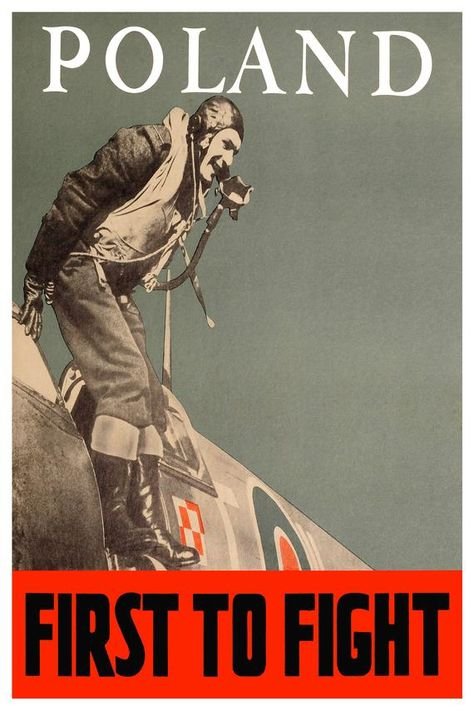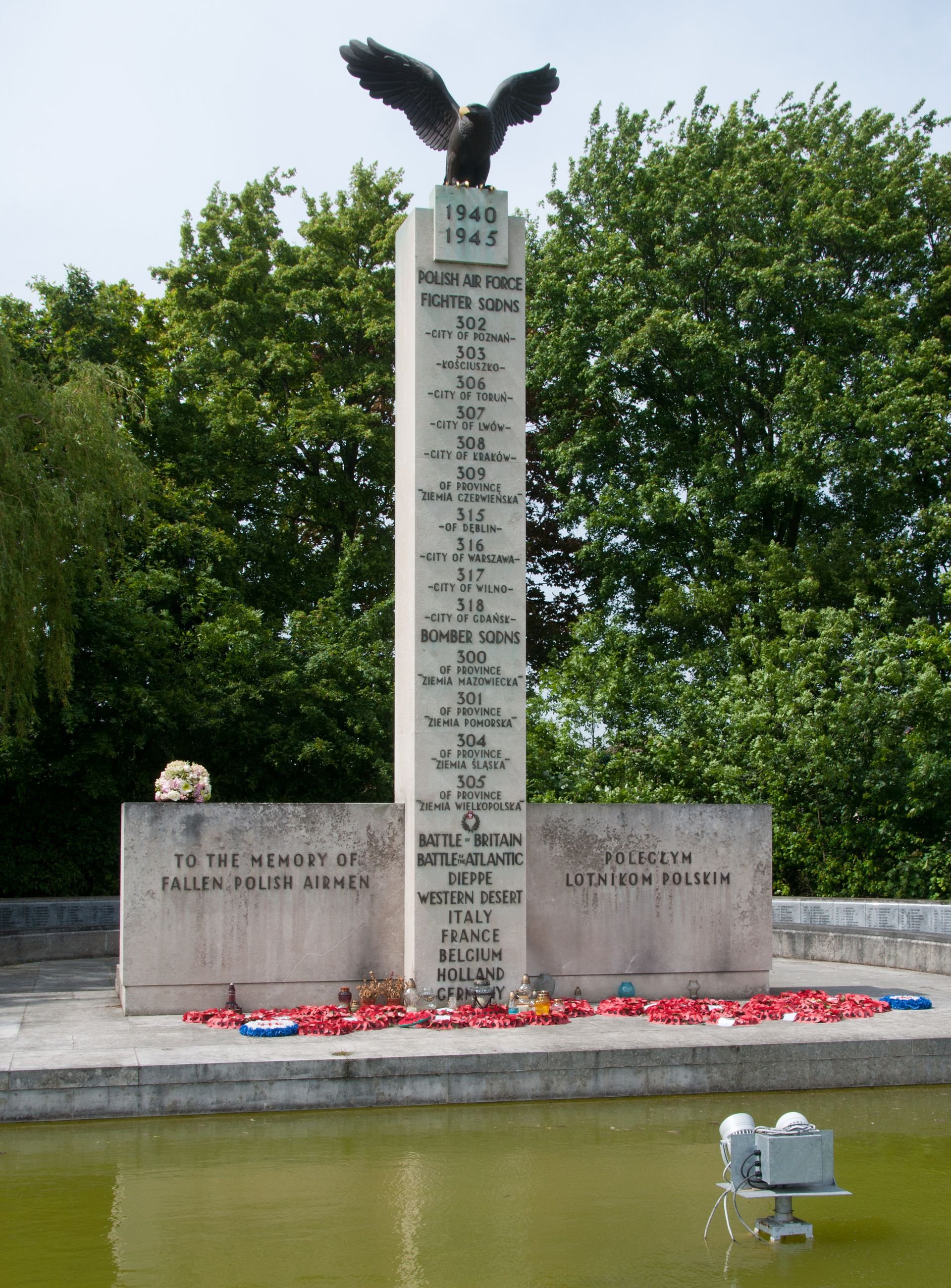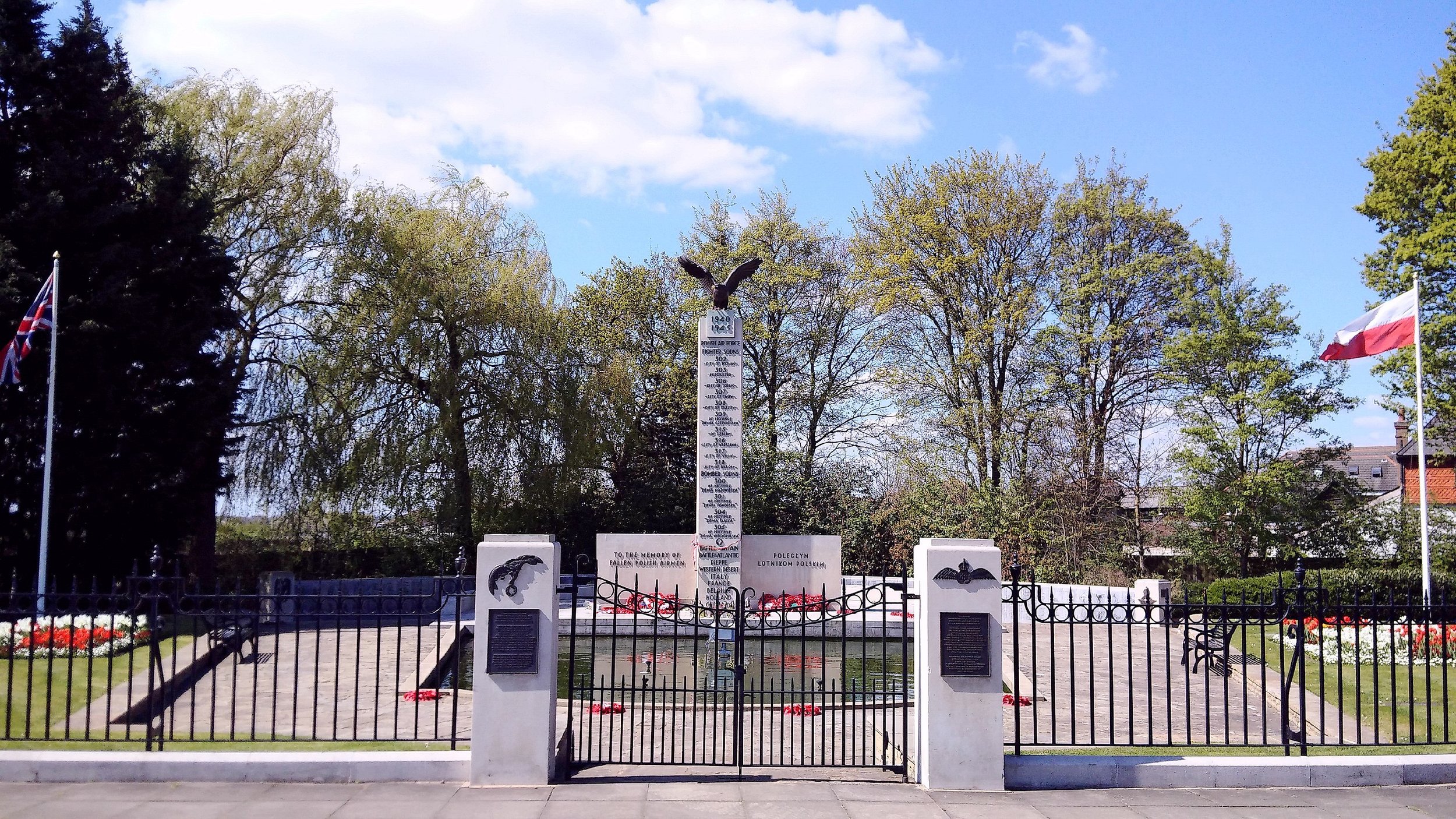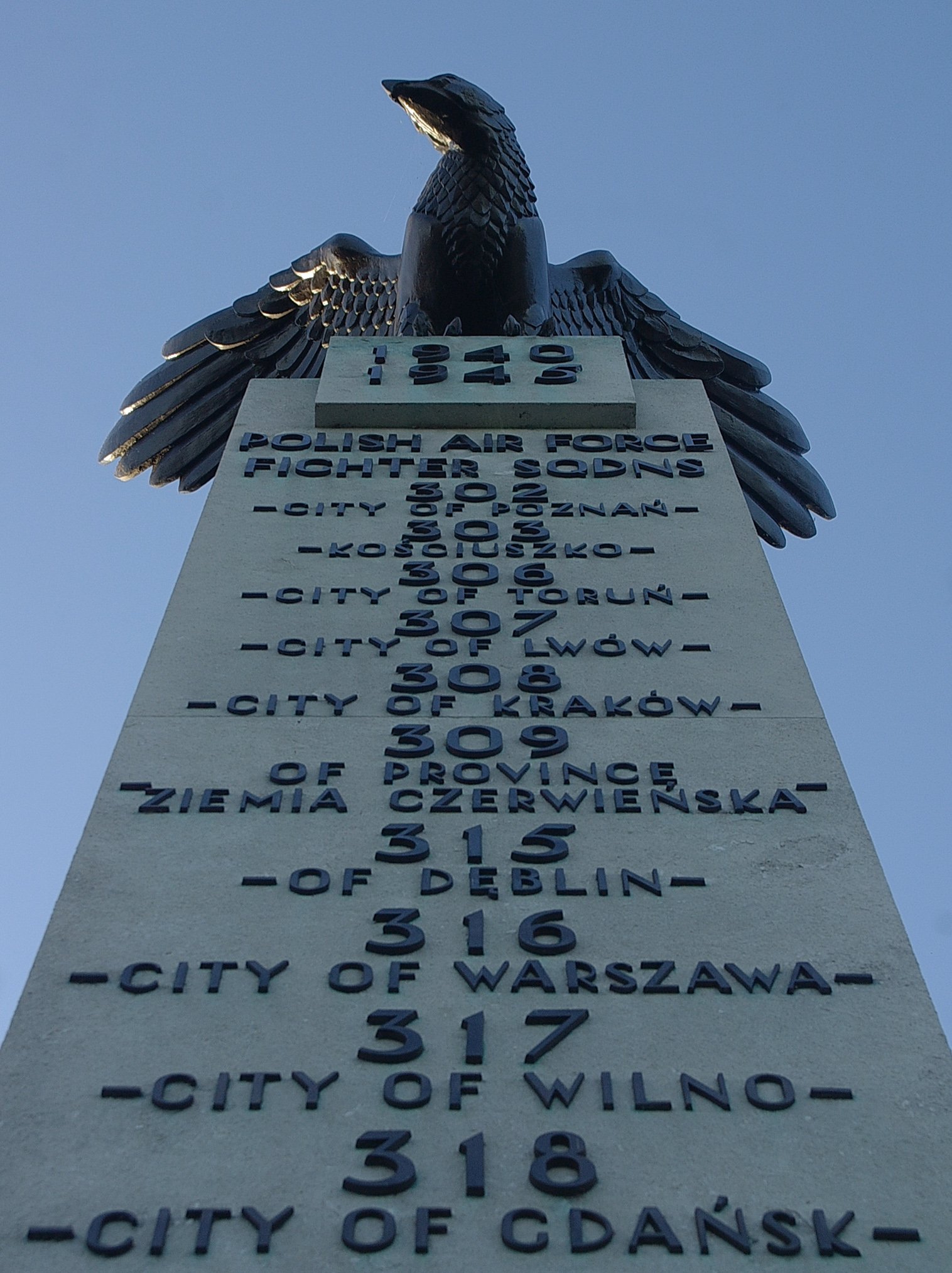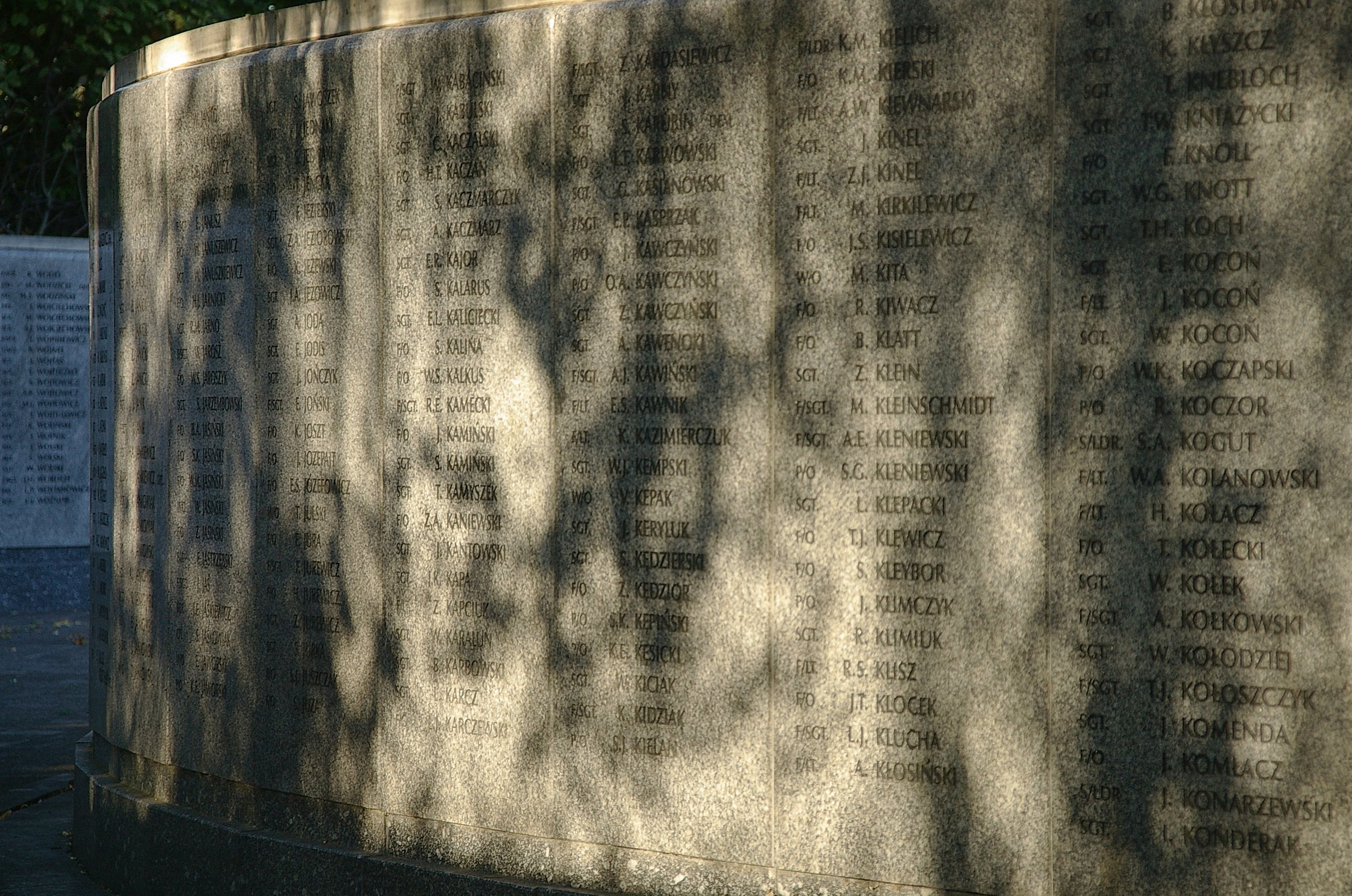RAF 11: The Free Polish Air Force Guardng Sentinel Britain 1940
I
AS I TRAVEL into London from Gloucestershire, I pass RAF Northolt on the M40.
In my service days, I had a couple of short stays there. For me, this was especially important, as it was one of the main fighter stations in No.11 Group, RAF Fighter Command in 1940, and just one of the major airfields from which the Battle of Britain was engaged and the Battle for Britain was fought between 4 July - 15 September 1940.
The Battle of Britain, of course, carried on well into 1942 with the Blitz and then again in 1944 when it was prosecuted by Nazi Germany with vigour and ruthlessness with the use of the V1 and V2 missiles.
As I review this Paper first penned on 24 October 2020, I now find myself marvelling at how the People of Ukraine are also being blitzed by Russia.
II
In the 1960s, the entrance to the station (we now say base) took second place to a very imposing memorial that had been erected on the corner of the station entrance, but seemingly ever-present; a constant reminder to the dense traffic into and out of the Capital, London.
From here, the battle was waged, lives were given, lives were lost, lives were saved, but all, in the cause of freedom.
The Memorial was so impressive to me, a fifteen year old, a newly enrolled cadet in the Air Training Corps in 1968, seeing this column towering above me, upon which rested, ever watchful, the Eagle.
For me, this was obviously the Eagle of the Royal Air Force, and which I proudly wore on my beret. Only later, in my commissioned service, did I realise that this was the Eagle of Poland, Guarding, Standing Sentinel.
I still sense that excitement fifty-two years on.
III
RAF Northolt is still a very important base.
In the 1979s-1980s our road infrastructure required a substantial upgrade. This meant widening the road running past Northolt and thus repositioning the Memorial.
No longer did the Memorial stand sentinel on the road’s edge.
Arguably, the Memorial is even better today, beautifully attended and maintained, and a tribute to all who fought in the Battle of Britain, and then throughout the whole war, 1939-1945.
It is, though, even more important for me, because it is the Polish War Memorial.
I do not intend to go into RAF Northolt’s history, and what an esteemed history it has, not to mention its current role in our Royal Air Force. This information can be found on the link here, and Wikipedia is to be congratulated.
The Polish airmen of No. 303 Polish Fighter Squadron stand out in the Battle of Britain.
But again, I am not going to talk about scores, aces, and so forth because we are now eighty-four years on. One might, therefore, ask, ‘Why are you writing this then?’ A worthy question.
Being aware that my parents both lost their brothers serving with 76 Squadron (1943) and 405 (City of Vancouver) Patfinder Squadron RCAF (1945) respectively, I grew up very aware of these two absent people, absent and yet very much present. And they, and my four grandparents made sure that I knew what sacrifices had been made, and more importantly, how it all started with the invasion of Poland on September 1, 1939.
As a cadet, I used to marvel at how the Polish airmen had managed to make their way to Britain. Even though I now think that mum and dad might have held back a bit on some of the details of that horrific time for Poland for the ears of one so young - even now, I find it troubles me, the absolutely grotesque and deliberate calculated inhumanity of people to others, and with such deliberate viciousness, when I read the historical accounts by great historians such as Sir Antony Beevor and Sir Max Hastings to name but two.
No. My reason for writing, is my desire to set the record straight, at least for me, when I look at the antics of politicians in every age, even the great Statesmen.
During my service in the RAF VR I have marched many times on Remembrance Sundays in November - The Armistice 1918 - and on Remembrance Sundays - the Battle of Britain Day 1940 . And no matter how I approach the decision by wartime politicians in 1945, and thereafter, to disallow the Polish squadrons to march in the 1945 Victory Parade in London Whitehall, I cannot, and I will not, condone the decision made by Winston Churchill and Clement Attlee, two for whom I have the greatest respect.
A decision made on the basis that Stalin, that other fanatical dictator, would be offended if they allowed the squadrons to march.
Learning this history has, of course, given me a fresh beam of light onto the magnificent Polish War Memorial at Northolt and onto the corner of Western Avenue, now dedicated to the Poles.
It is as if events overtook the political machinations of the hour.
As a young man, I used to gaze up at the eagle. It meant freedom. A price had been paid, millions had perished in that price waged over six years from 1939-1945, and a signal went out loud and strong from my family and which I have carried with me and guarded.
Let us not judge. Rather, build bridges. But let us also not forget our history.
To unknown friends who kindly follow this website in Poland, Alwernia and also Krakow, Lesser Poland, I bid you all a very good evening and my heartfelt thanks that, when freedom fled, you held on, you resisted, you counter-attacked and eventually, decades on, secured that which you have now.
Niech żyje Polska
31 March 2024
All Rights Reserved
LIVERPOOL
© 2024 Kenneth Thomas Webb
The cities of "Lwów" and "Wilno" are now Lviv and Vilnius respectively.
First Written 24 October 2020
Linked RAF 5


